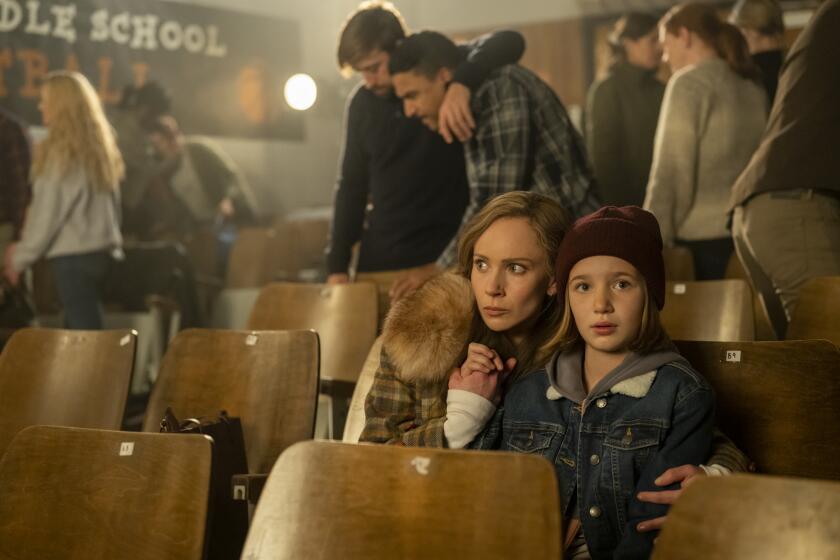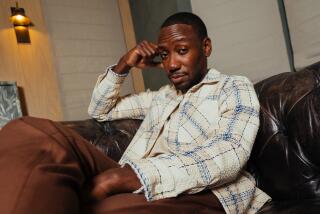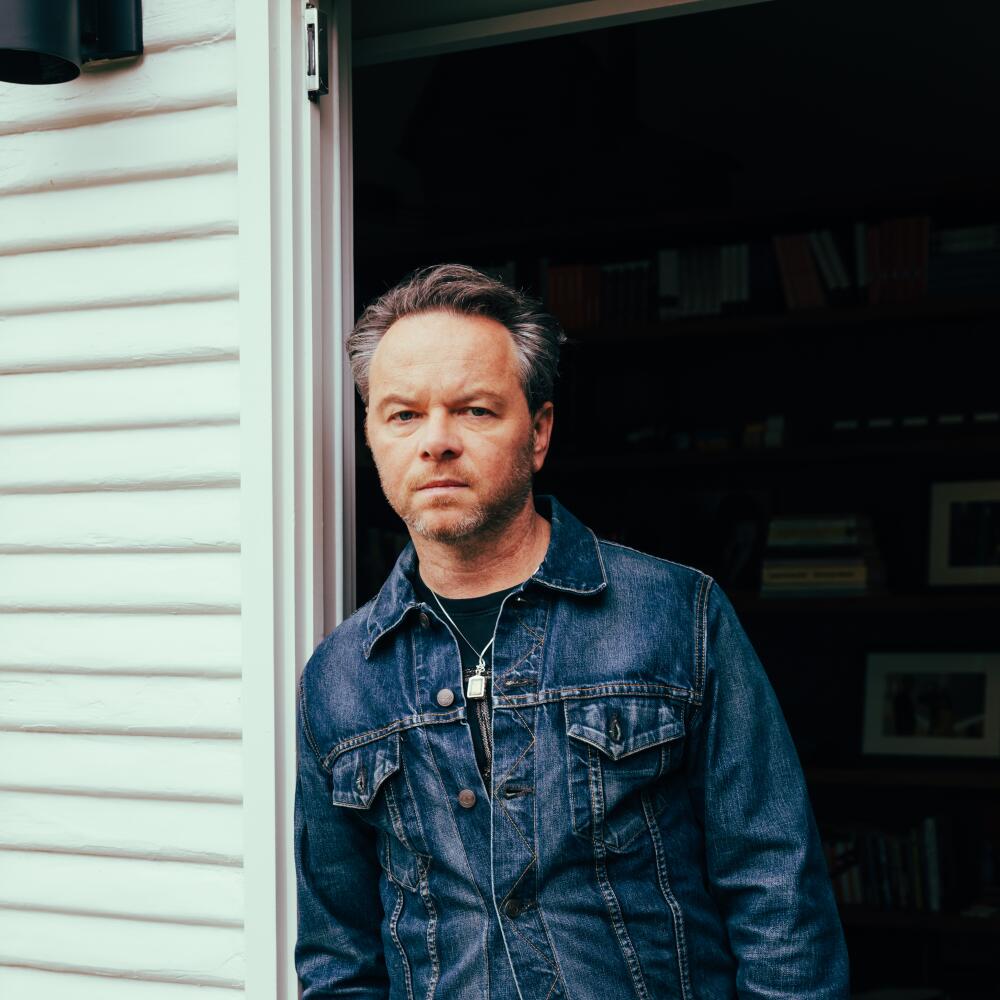
This article contains spoilers from the first two episodes of “Fargo,” Season 5.
Just before working on the new season of “Fargo,” Noah Hawley — the showrunner who adapted the Coen brothers’ unforgettable dark comedy film into one of TV’s most striking anthology series — did something he had never done before: He went back and watched all four seasons of the show.
“What was great in watching those first four seasons was that I was far enough away that I didn’t even really remember what the fears were in the moment when it was still a working document,” Hawley says. “I reminded myself, most importantly, they’re all so different and that this one should be as well.”
The series returned to FX on Tuesday after a three-year hiatus. And while “Fargo” again resets from previous seasons with a new timeline and characters, this installment is more closely aligned with the eccentric and beloved 1996 film from Joel and Ethan Coen about a bungled kidnapping and extortion attempt.
Premiering with two episodes directed by Hawley, the fifth season takes place in 2019 and stars Juno Temple as Dorothy “Dot” Lyon, a seemingly typical Midwestern wife and mom who is kidnapped and suddenly thrust back into the secret life she thought she had left behind. The people searching for her include North Dakota sheriff and ex-husband Roy Tillman (Jon Hamm), her mysterious kidnapper named Ole Munch (Sam Spruell) and deputies Witt Farr (Lamorne Morris) and Indira Olmstead (Richa Moorjani), who are working the case.
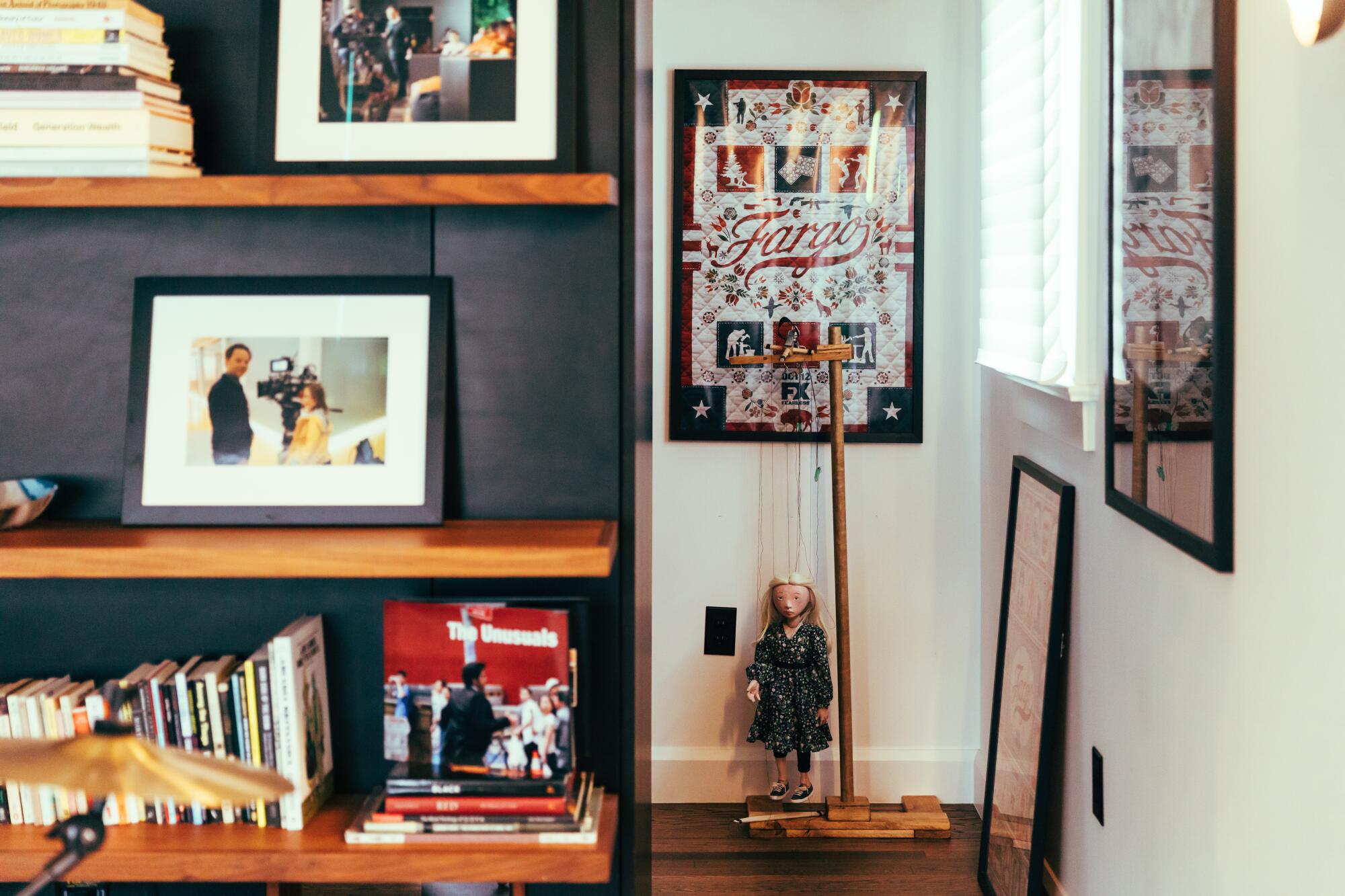
The story opens with Dot getting arrested during the chaos of a school board meeting that’s devolved into an all-out battle.
“In telling the most contemporary story, I was really grappling with this idea that underlies the entirety of ‘Fargo,’ which is this idea of ‘Minnesota nice,’” says Hawley. “The comedy and the drama of the film is wrapped around this idea that in a polite society, people don’t know how to bend, they only break. Then you start to think, ‘Well, who’s going to the school board meetings except those people?’ We’re seeing that veneer shatter. It felt like the most visceral and visual way to signal from the first moment that it’s not the America of ‘Fargo’s’ past; we’re in a different spot here.”
Since the last season of “Fargo” ended, the multi-hyphenate storyteller — he started out as a songwriter and musician — released his sixth novel, “Anthem,” a thriller that follows a group of teenagers through an apocalyptic America, and began work on an upcoming “Alien” adaptation for FX.
In a recent video call from his home in Austin, Texas, Hawley talked about dabbling with the original source material this season, how “Home Alone” and “Die Hard” influenced the storytelling, making headlines during the writers’ strike and figuring out the aesthetic of “Alien” for TV.
“Fargo” returns to FX on Tuesday, and the series is centered once again in Minnesota, with a fifth season starring Juno Temple, Jennifer Jason Leigh and Jon Hamm.
Revisiting the story from the wife’s point of view
The Coen brothers’ Oscar-winning film stars William H. Macy as a car salesman in Minneapolis who hatches an ill-fated plan to have his wife kidnapped, and Frances McDormand as a pregnant police chief working the case.
As a TV spinoff following an anthology format, the show each season has taken place in a different era, with a different story, cast and set of characters. Set more recently than previous seasons, Season 5 also plays with the premise of the original film more directly.
“That story of the Bill Macy character [Jerry Lundegaard] who has his wife kidnapped because he thinks his rich father-in-law will pay the ransom and he loses control of the whole thing — I thought there was something interesting to that because the only one who doesn’t really get much screen time or voice is the wife. I thought it was interesting to revisit the story from the wife’s point of view, while exploring the very concept of wife-ness. It’s the story of a wife who was kidnapped by her husband; it’s just not the man she is married to right now. But what happens if they come for her in almost identically the same way that they come for the wife in the movie, but something very different happens because she’s not that person. She’s a very different person because she has had to escape from an abusive husband in the past. “
As Ole Munch, one of her kidnappers, describes her, Dot is no ordinary housewife: She’s a tiger. She’s a woman who is quick on her feet, finding ways to scorch or clobber her kidnappers. Back at home after successfully fleeing, she enlists her daughter to engineer traps around their home to slow another kidnapping attempt. In her first role since her Emmy-nominated turn in Apple TV+’s “Ted Lasso,” where she played model-turned-businesswoman Keeley Jones, Temple showcases her ability to tap into the darkness and humor that’s signature to “Fargo.”
“What I told Juno is that Dot is not a large person, she’s not a ninja, but what she has is an active imagination. She has an ability to be creative in her thinking under extreme pressure. There is a kind of ‘Home Alone’ or even ‘Die Hard’ quality to the show at times as this woman, who you see is outnumbered and seemingly with no options, but it’s amazing what she can find in the kitchen or the utility room to fend off some attackers. Dot is a mother. She has a 12-year-old daughter, and what you need is an actor who is so winning and mischievous and playful that you think she’s a great mom. If you didn’t have that, you would have someone who you would feel like is a terrible mother because she’s putting her child in danger, but instead what she’s really trying to do is teach her daughter how to fend for herself and to make a game out of it.”
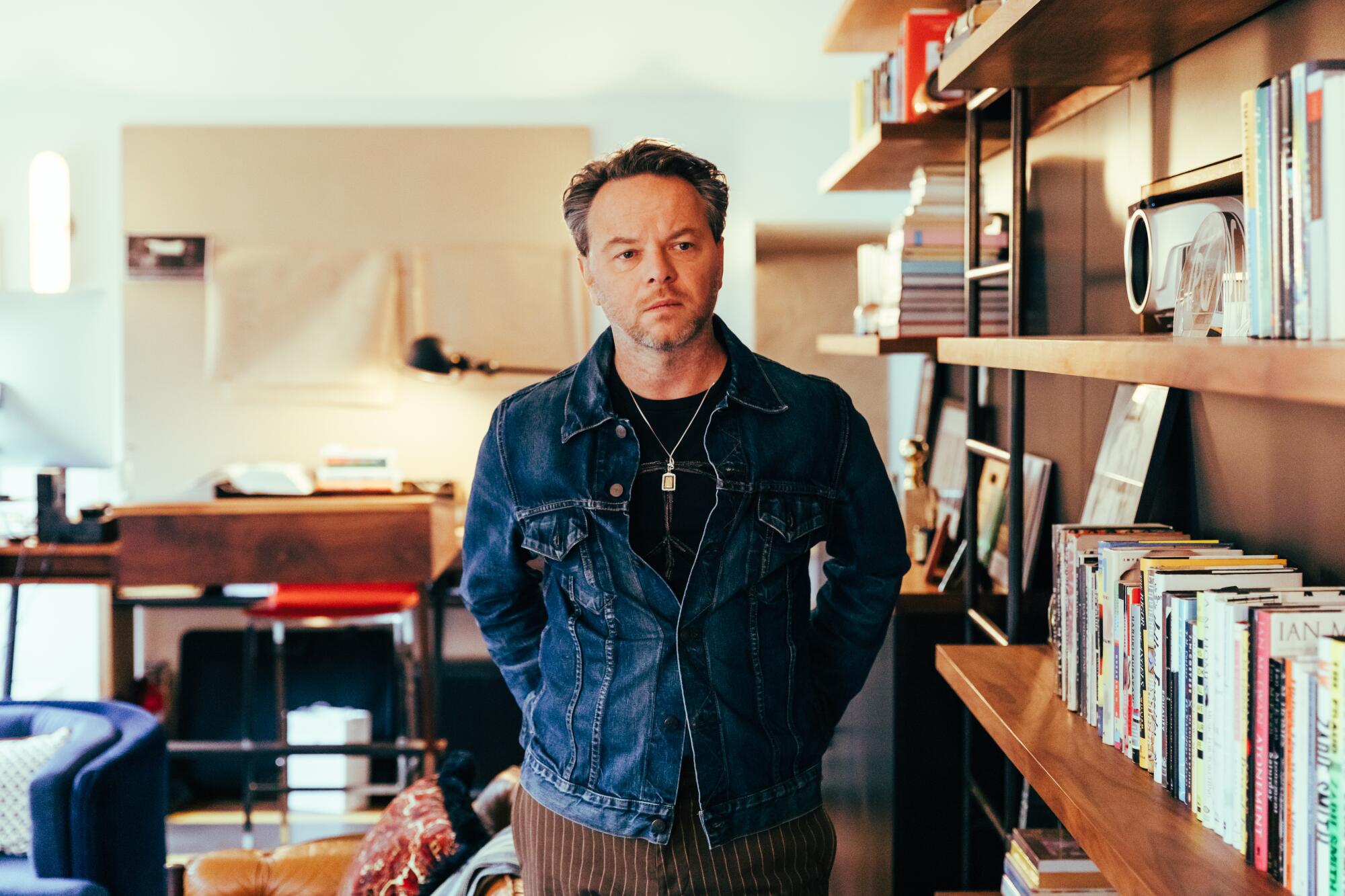
Hamm, as her preacher-slash-sheriff ex-husband, who thinks he’s above the law, continues”Fargo‘s” knack for putting together an eclectic ensemble cast that features high-profile Hollywood actors (past seasons have featured Billy Bob Thornton, Kirsten Dunst, Ewan McGregor and Chris Rock) in some wonderfully quirky roles. In Episode 2, “Trials and Tribulations,” Hamm’s Roy is soaking in an outdoor hot tub, his nipple rings in view, when he’s visited by the two FBI agents who question him. He rises from the water, exposing himself to the agents before wrapping himself with a towel emblazoned with his face — swag from his re-election campaign.
“In the old days, a character like Roy, who is a Bible-quoting, constitutional sheriff, you wouldn’t have seen him as a square conservative, moral majority. But I think what we learned during the Trump era is that we live in ‘Tiger King’ America now. There is a kind of redefining what Christianity is that often includes a lot of hedonism. I wanted to have that element in there with the nipple rings on Jon, which are never spoken to, but they just say something about him, which is he’s a square, seemingly, at least square-jawed man. He’s got a sex trunk in his bedroom, and he smokes some weed. This is not the G-man of old.”
So how do you tell Jon Hamm, “Hey, so nipple rings...”?
[laughs] “It’s in the script. He’s got to go in, they have to take a cast of his nipples and make fake nipples that they then glue to him. And then the towel — Roy’s running for reelection, and there’s a billboard with his face on it, and if you’re going to cover yourself with your towel, you’re gonna have one with your own face. So these elements are just the specific details that are both where comedy lies but they’re also critical to great drama as well. Make a choice, make it specific, and you’ll make it memorable.”
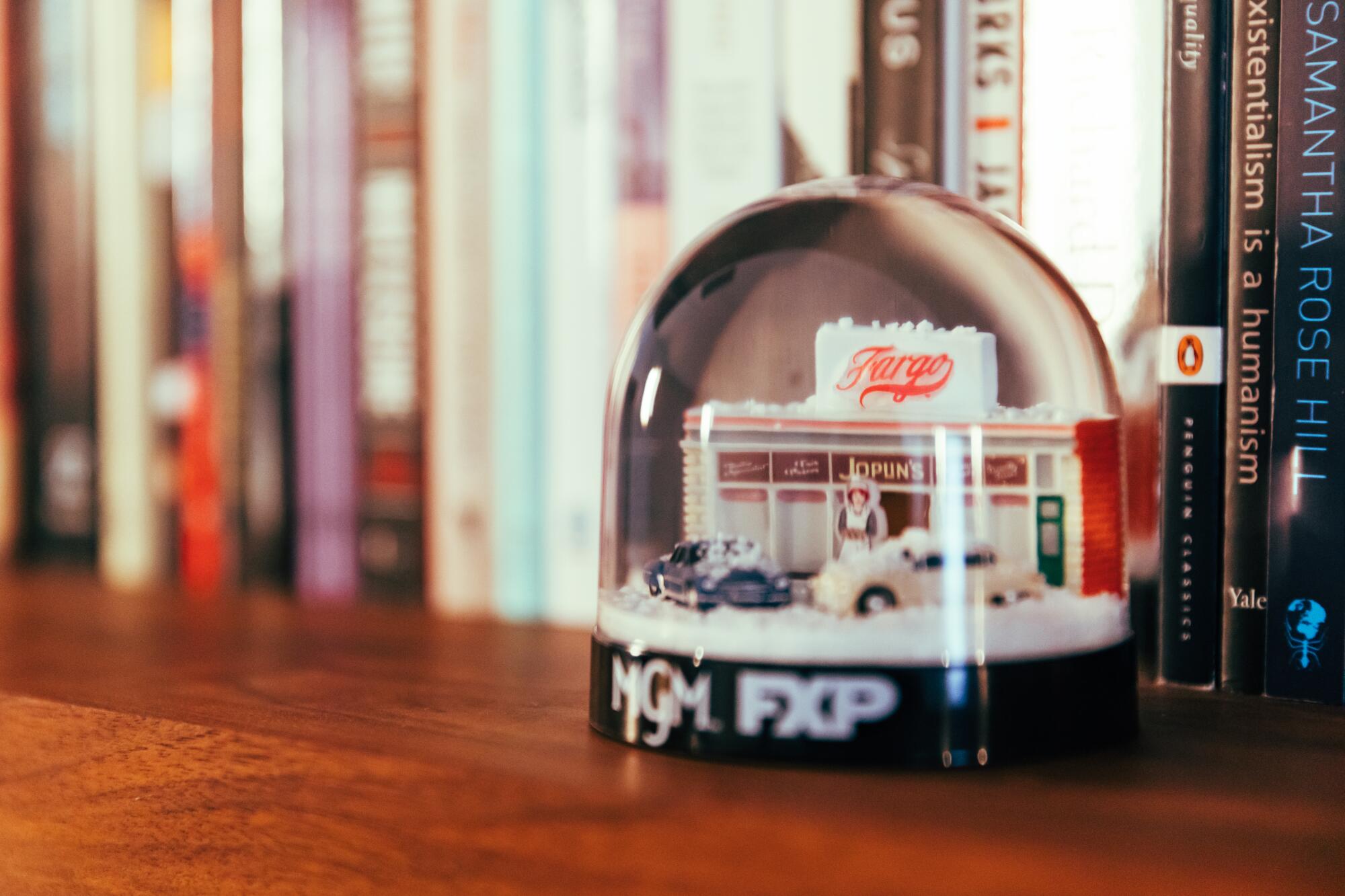
The writers’ strike and new agreement
As Hollywood’s contentious writers’ strike entered its 20th week in mid-September, Hawley was one of several prominent TV showrunners who sought a meeting with the Writers Guild of America, the union that represents TV and film writers, as talks with the Alliance of Motion Picture and Television Producers, which bargains on behalf of studios, were at a standstill. After spawning headlines and fueling questions as to whether it signaled disunity among the membership, the meeting ultimately didn’t take place. On Sept. 24 — after a 146-day strike, the second-longest in Hollywood history — the WGA and AMPTP announced that an agreement had been reached.
“The last thing that I wanted to do was to start a fight. The point was simply to ask, “Hey, what’s going on? We’re not hearing anything.” That was literally the entire motivation of it that then led to the events that have been reported on.
The reality is that I never got in the room to ask the questions. What happened instead was they went back in the room and they made the deal, and that was great. I don’t need those answers as long as we’re moving things forward. I think it’s dangerous when you get into any situation in which the rule is that you can’t ask questions, because that implies some level of disloyalty. And I don’t think that’s what anyone was trying to do. But I do think that we have a unique union in that a not insignificant part of our union is also management-responsible for employing not only members of our same union but also members of every other union. And those are good people, the showrunners, to keep involved in the process. “
Hawley says he is pleased with the terms of the new agreement, which outlined increases in wages and residuals, minimum staffing requirements in television writers rooms, payments based on the success of streaming shows and protections on artificial intelligence.
“When you can lift the floor, the ceiling lifts automatically. I think that the fear is, in Hollywood, everyone always talks about precedent. And the moment you can establish new precedents, you’re not going back now. I do feel like there’s a lot of pain and, unfortunately, a lot of pain suffered by people who won’t realize any benefits from the deal that writers made, because they’re not writers. But I think we all appreciate the sacrifice that others have made, because we’ll be there for them.
What was most important for me, really, was the value of writers. The reality is almost every other place around the world, the person who writes the show, owns the show. In America, I create a show and I am hired as an employee on that show. We’re not negotiating over that. What’s on the table are a series of other points in which to improve our standing as employees on our own shows and to that extent we also individually negotiate deals. I think we made great strides in fighting off a devaluation of the creative brains that make the shows and the movies.”

His next TV adaptation: ‘Alien’
After putting his stamp on “Fargo,” Hawley is in the process of adapting another established cult movie, “Alien,” into a TV series for FX. He is directing the first hour of the sci-fi spin-off, which was first announced in December 2020, and said about 70% of it was shot before filming was suspended over the summer. With the industry beginning to power back up now that the writers’ and actors’ strikes have ended, Hawley confirmed plans to resume production in 2024.
“The plan now is to go back in January, prep the rest of the season — it’s an eight episode season — and start shooting again in early February through July. We’re filming in Bangkok, which is another world away and has been such a great experience for me. It’s aliens and spaceships and science fiction; it’s a whole new palette and genre.
It’s weird to start, then stop and wait. I was able to cut together what I shot and to really think deeply about what have I learned and do some script revisions, so there’s also invaluable-ness to the opportunity of time, which is something in TV you never get because you’re always racing.”
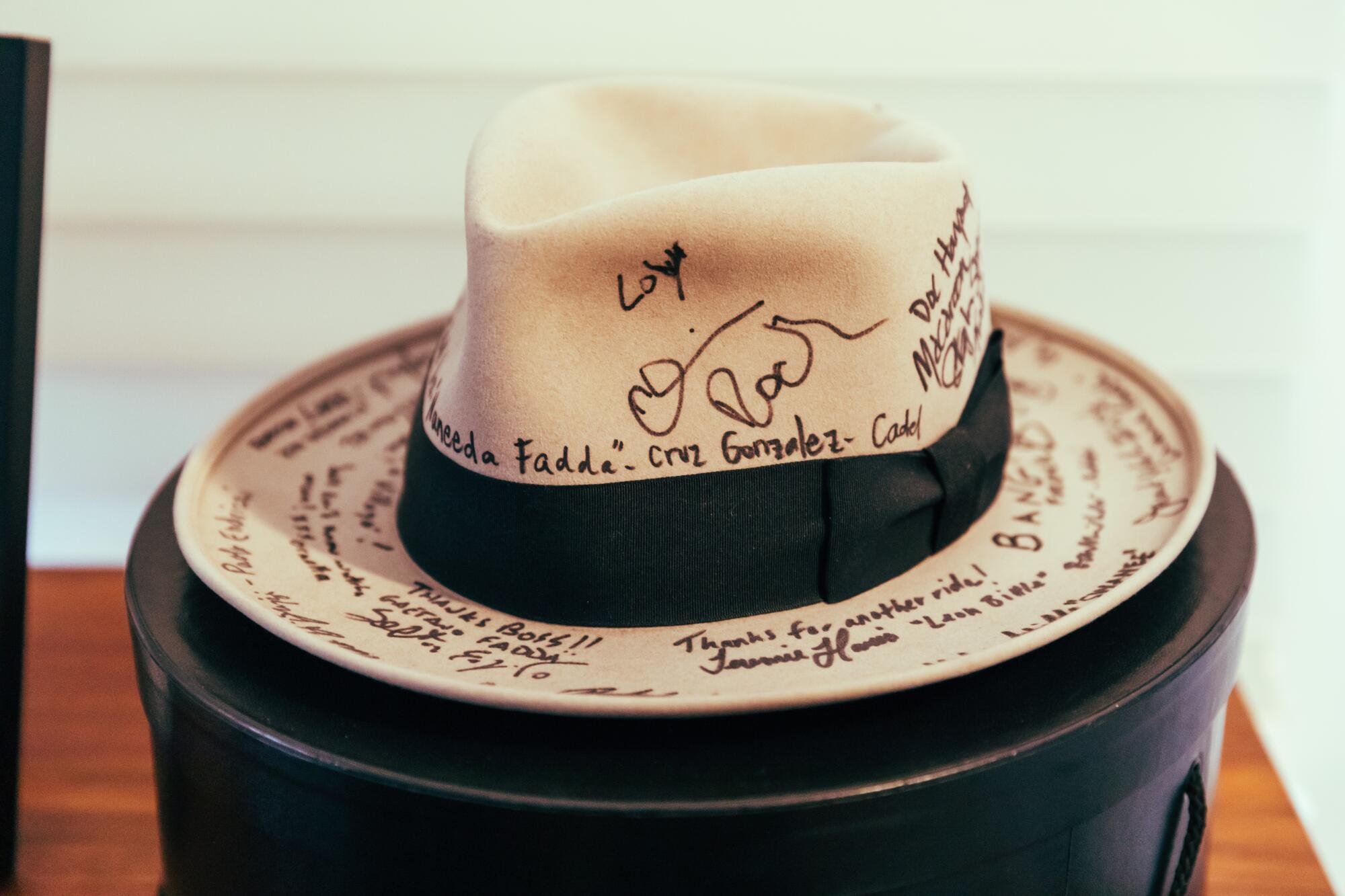
The series is set in a time period before the events in the 1979 sci-fi horror classic, and it is the first story in the franchise that takes place on Earth. As Hawley explained, building out the mythology is what made adapting the “Alien” universe for TV compelling to him.
“The prequels aside, because those are historical documents, what do we really know about the ‘Alien’ universe? We know there’s a company called Weyland-Yutani. We don’t know a lot more about it. We don’t know what the government structure is, the politics of it, what’s Earth — none of that. That’s liberating on some level to not have to thread various needles. But the challenge is also that we’re only ever in these artificial environments, the spaceship or a prison or whatever. What does an apartment look like on ‘Alien’? That basic stuff of the palette of ‘Alien,’ the design of that ship, that dripping is so specific. I think that the sweaty aesthetic of ‘Alien’ plays very well into climate change and the hot, wet future that we’re all moving toward. Technology in the first two movies was rooted in the retro futurism of the ’70s and ’80s. Is that our aesthetic? Those challenges really excite me because I would much rather deal with computers that look like that than holograms and feel like I’m in an Apple store.
“What’s rooted in the horror of ‘Alien’ is discovery. The life cycle of this creature, besides being insane, is truly terrifying. It’s an egg, and inside that egg is a creature that attaches to your face. I’m already out. But then that creature that attaches to your face lays another creature inside of you — hold on a second. Then that creature bursts out of your chest and grows to 9 feet tall? What is this creature? The experience of watching “Alien” for the first time is so visceral; it just gets worse and worse and worse and worse. [Director] James Cameron was able to take that and turn it into an action movie in which you knew what the life cycle was, so there was the horror of anticipation. But who’s laying those eggs? So he added that other element to it. But after that, there’s no discovery or surprise, we’re just doing that again and again.
The challenge for me is: Is there a way that we can take the audience back to “wait, what’s happening? What does this thing do?” That was the first challenge. The second challenge, which is why I think it justifies a show with multiple hours of storytelling, is that it’s not just a monster movie. It’s about humanity trapped between this primordial “they want to eat us” past and the AI future, and they’re both trying to kill us. We’ve created these tools that are turning on us, or if we program them correctly, we’ll go insane. Those elements of humanity, artificial intelligence, trans-humanism — ‘what’s the future of humanity?’ is a really interesting thing to talk about right now. Combined with the revenge of nature — we’re experiencing that now as weather or viruses or whatever. If we’re in a place where our self-driving cars are gonna kill us, or we’re going to drown in them, there’s a story to be placed in the middle of that.”
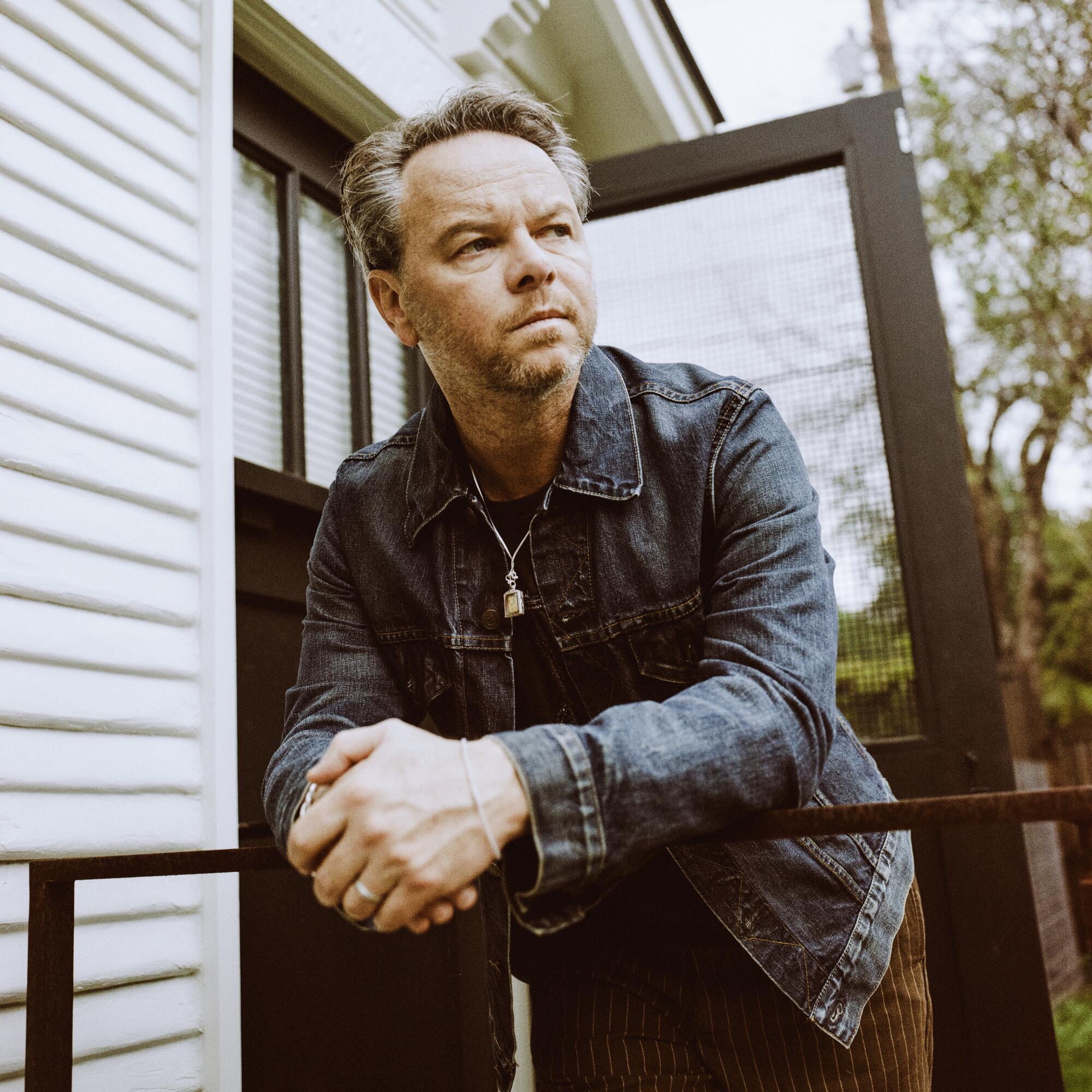
Hawley couldn’t stop watching ‘Top Boy’
When asked what is the best TV show, new or not, that he’s watched recently, Hawley gave his praise to “Top Boy.” Often compared to HBO’s “The Wire,” the British crime drama, which is available to stream on Netflix, follows drug kingpins and childhood best friends Dushane (Ashley Walters) and Sully (Kane Robinson) and their rivals. The first two seasons of “Top Boy” aired in the U.K. in 2011 and 2013, respectively, before it was canceled. The show was resurrected by Netflix in 2019. The fifth and final season debuted earlier this fall.
“I wasn’t watching it in its early iterations when it came out. I saw an article when this last season was going to come out and I found the earlier seasons. I just thought that show was great — on a character level, the specificity of the world language of it. It felt real and grounded. There was humor to it and creative storytelling, and I thought that final season really delivered on the promise of it. It’s a tragedy that’s fun to watch. But these stories don’t have happy endings, but you still get pulled into it.”
More to Read
The complete guide to home viewing
Get Screen Gab for everything about the TV shows and streaming movies everyone’s talking about.
You may occasionally receive promotional content from the Los Angeles Times.
